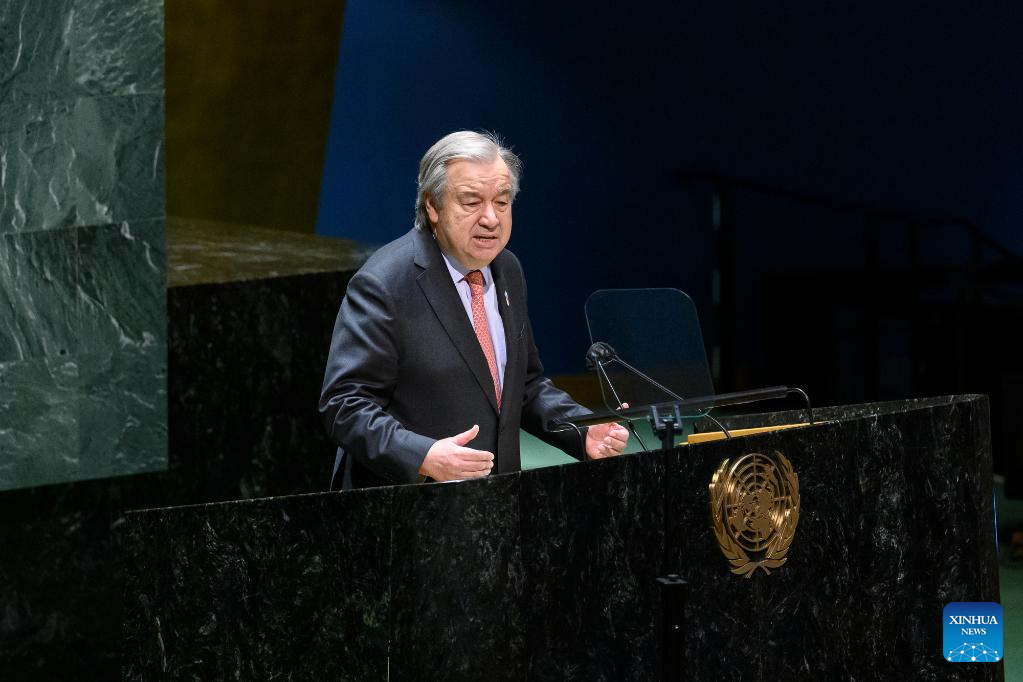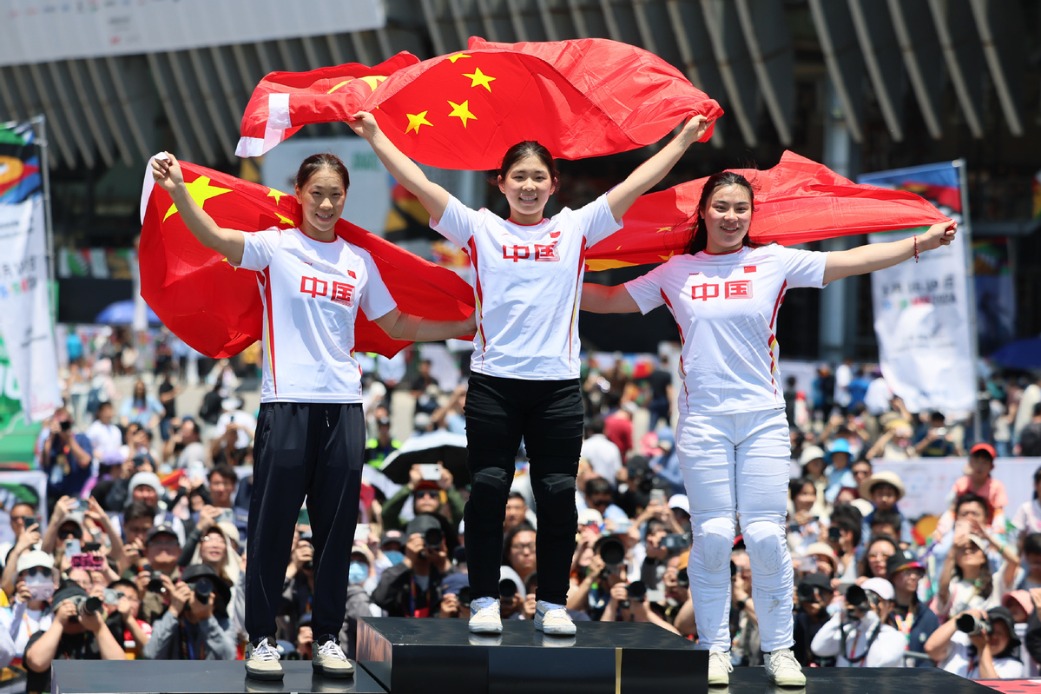UN chief highlights 5 lifelines for recovery, development of LDCs
Xinhua | Updated: 2022-03-18 10:28

UNITED NATIONS - UN Secretary-General Antonio Guterres on Thursday highlighted five lifelines that will help the least developed countries (LDCs) recover in the short term, achieve the Sustainable Development Goals in the medium term, and prosper over the long term.
The first lifeline is the equitable distribution of COVID-19 vaccines, he told the fifth Least Developed Countries Conference.
Manufacturers are producing 1.5 billion doses per month, but nearly 3 billion people -- mostly living in LDCs -- are still waiting for their first shot. This failure is the direct result of policy and budgetary decisions that prioritize the health and wealth of people in advanced countries over the lives of people in poor countries, he said. "Our world cannot afford a two-tiered recovery from COVID-19. Despite the numerous other crises facing our world today, we must reach our goal of vaccinating 70 percent of people in all countries by the middle of this year."
The second lifeline is a global financial system that puts the needs of LDCs first, he said.
More than ever, developing countries need to invest in sectors vital to reducing poverty and increasing resilience. But they are up against a morally bankrupt global financial system that stands in the way.
LDCs require urgent debt relief, restructuring and cancellation in some cases. They should be able to borrow at a low cost and be protected in times of crisis, including through integrating measures like hurricane clauses into debt contracts. There is also a need to increase liquidity available to LDCs and to create a fair tax system and combat illicit financial flows, he said.
The third lifeline is supporting structural transformations across LDCs, said Guterres.
Most economic growth in these countries is linked to natural resources or extractive sectors, which are highly volatile in the short term and vulnerable to fluctuating commodity prices, marketplace whims, and the impacts of climate change. These sectors are further inhibited by poor education and training opportunities for workers, weak physical infrastructure, and lack of access to productivity-enhancing technologies, he said.
LDCs need structural transformation support. They need support to increase their participation in global value chains. This means investing in a healthy, educated and skilled workforce. It means modernizing infrastructure and transportation networks and facilitating trade flows to reduce costs and increase efficiencies. It means realizing the benefits of universal digital connectivity so businesses can compete and flourish in the global economy. It means transforming extractive sectors and creating greener jobs and greener economies. And it means promoting open and fair trade rules so all countries can compete on a level playing field, no matter their position on the development ladder, he said.
The fourth lifeline is climate action, said Guterres.
Least developed countries did not cause the climate crisis. But they are living with its worst impacts, he said.
"We have a brief and rapidly closing window of opportunity to hold warming to 1.5 degrees and secure a liveable future. Scientists tell us that we must cut global emissions by 45 percent this decade. But we are nowhere near this target. Current national plans would see emissions rise by a disastrous 14 percent in 2030. We cannot let this happen."
LDCs need a massive boost in technical and financial support to spark a just transition to renewable energy and green jobs. They also need a massive boost in support to build resilience against the impacts already battering them, he said.
The fifth lifeline is peace and security, said Guterres.
Today, the world faces the highest number of violent conflicts since 1945. And LDCs represent the lion's share of these hot spots, he said.
Peace and security cannot take hold in an absence of development. Nor can development take hold in an absence of peace and security, or in countries where historical injustices, inequalities and systematic oppression have locked generations of people in cycles of disadvantage and poverty, or where basic services like health, education, security and justice are lacking, he said.
Across these five lifelines, the LDCs can count on the total commitment of the entire UN system, said Guterres.
























